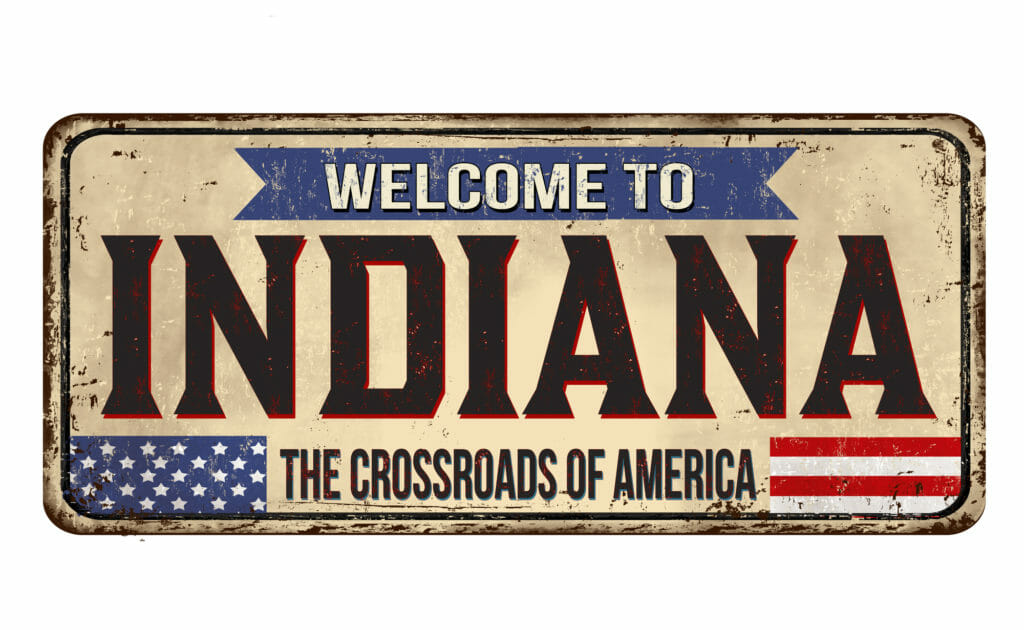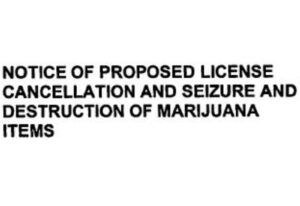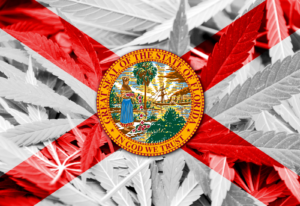Indiana has long been at the forefront of hemp product regulations. Two years ago in 2018, Indiana passed a comprehensive law that regulated “low-THC hemp extracts.” At the time, state-level regulation of CBD was mostly limited to medical marijuana programs in conservative states that only allowed CBD extracts for use by medical patients. Very few states were making the distinction for CBD derived from hemp (Hemp CBD) and fewer still were imposing manufacturing, testing, and labeling requirements.
I was fascinated by Indiana’s law because it was so rare at the time. In June of 2018, I wrote about Indiana’s hemp framework for this blog, noting that the state’s robust labeling requirements were “roughly equivalent to what we see as far as packaging and labeling requirements for cannabis products in Washington, Oregon and California, the states in which our cannabis business attorneys are located.” For instance, one of Indiana’s labeling requirements is “[a] scannable bar code or QR code linked to a document that contains information with respect to the manufacture of the low THC hemp extract, including the:
(A) batch identification number;
(B) product name;
(C) batch date;
(D) expiration date, which must be not more than two years from the date of manufacture;
(E) batch size;
(F) total quantity produced;
(G) ingredients used, including the:
(i) ingredient name;
(ii) name of the company that manufactured the ingredient;
(iii) company or product identification number or code, if applicable; and
(iv) ingredient lot number; and
(H) download link for a certificate of analysis for the low THC hemp extract.”
IC-24-3-21-4(1)
As it would turn out, Indiana was setting an industry standard for Hemp CBD products. In February 2019, Kristen Nichols, editor of Hemp Industry Daily, wrote in Marijuana Business Magazine about how Utah had recently “told CBD producers they need to put a code on labels to prove the products are legal.” She went on to write:
The Beehive State was following a path similar to one blazed by Indiana, another state not exactly known for embracing progressive ideas.
When it comes to CBD, though, Utah and Indiana might be on to something.
Utah regulators were obviously paying attention to the Hoosier state. In Utah, one of the labeling requirements for “an industrial hemp product containing a cannabinoid” is a “scannable bar code, QR code, or web address” linked to a document containing a list of items identical to the list required by Indiana, except for the fact that in Utah the list of ingredients is not required in the QR-linked document. UAC R68-26-5 (5). But, Utah does require that labels comply with federal law standards, so a list of ingredients, if applicable, would have to appear on the product itself. Id. at (11).
Soon after, Louisiana and Texas would also require or permit QR codes on Hemp CBD products sold in their state. Other states continue to adopt the “Indiana-style” labeling requirements. Eventually, I believe that the FDA will impose requirements for Hemp CBD that are similar to those established in Indiana and further developed in states like Utah. Utah’s regulations are more nuanced in the sense that they impose different requirements for different products. For example, Hemp CBD vapor products must be labeled differently than products intended for ingestion.
In light of the above, the the recent 7th Circuit decision on smokable hemp is all the more meaningful. If you missed our post last week on that, the 7th Circuit lifted an injunction that prevented Indiana from enforcing Act 516 to prohibit the delivery, possession, manufacture, and sale of smokable hemp. As this litigation indicates, for better and worse, Indiana is a leader when it comes to hemp products. It’s not uncommon for a state or city to become a leader in a particular area of law. Delaware has become the jurisdiction of choice for LLCs and corporations because its laws and judges are more sophisticated and business-friendly. The DC Circuit Court is similarly advanced when it comes to questions of administrative law.
Indiana has doubled down on the ban on its smoakable hemp ban, enacting a new law, Act 335, that mirrors Act 516’s prohibition on smokable hemp, without making it unlawful for individuals to ship smokable hemp through the state. That is key, because the interstate transport of hemp is protected by the 2018 Farm Bill and lead to the now-lifted injunction. Indiana could have also prohibited Hemp CBD back in 2018, but instead, it took a nuanced and thoughtful approach to regulate the product. I have no doubt that the state could do the same with smokable hemp by requiring that sellers register in the state to obtain a license and by restricting the use of smokable hemp to those over the age of 21.
It is disappointing to see a state-leader in progressive hemp regulations take a regressive approach to smokable hemp. In my opinion, unlike low-THC extracts, smokable hemp is just a little too close to marijuana for Indiana’s liking. I have a solution though: just legalize and regulate marijuana so you do not have to worry about people smoking hemp. Unfortunately, I do not see that happening in the near term in Indiana.
























